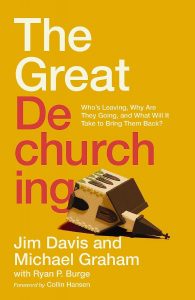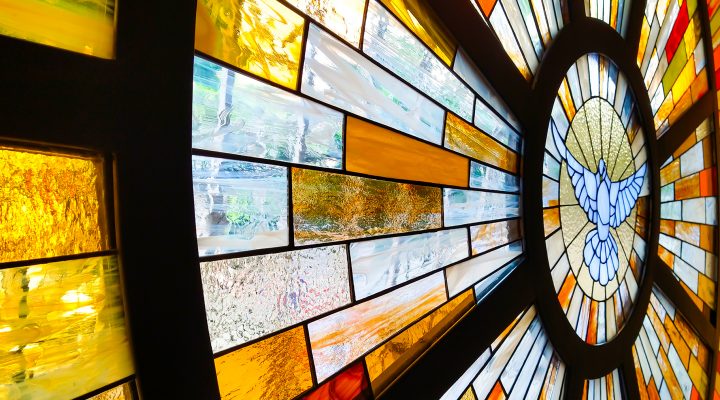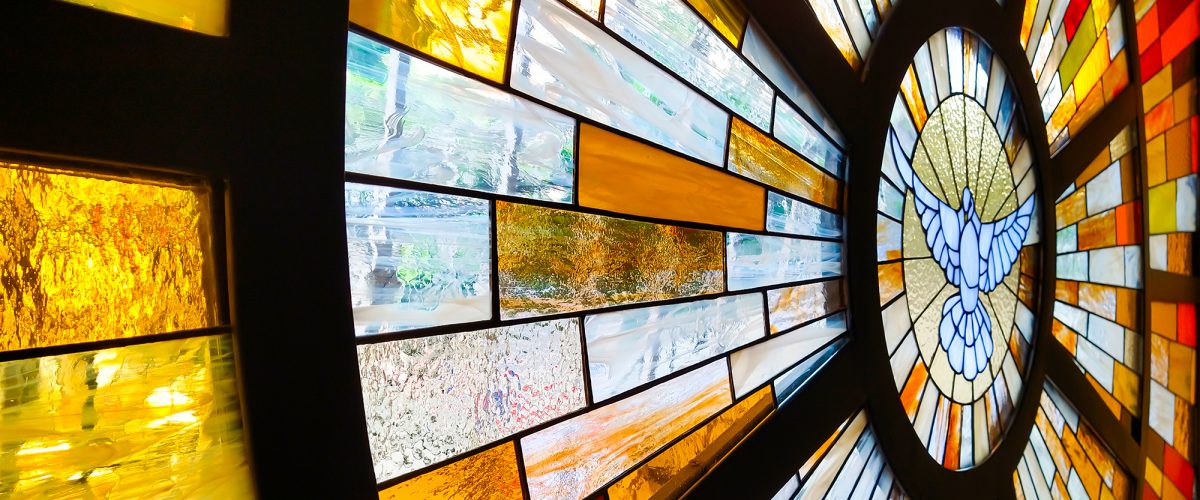The majority of Americans leaving the church do so for rather humdrum reasons, sociologist of religion Ryan Burge said during a recent episode of the “CBF Podcast.”
This phenomenon is known as “casual dechurching” and is typically overlooked because it’s not as headline-grabbing as disputes over gender and politics, said Burge, a political science professor at Eastern Illinois University known for his books and surveys tracking U.S. religious trends.
 “Casual dechurching is when people leave for very boring reasons, very logistical reasons,” said Burge, who collaborated in writing The Great Dechurching: Who’s Leaving, Why are They Going, and What Will It Take to Bring Them Back?
“Casual dechurching is when people leave for very boring reasons, very logistical reasons,” said Burge, who collaborated in writing The Great Dechurching: Who’s Leaving, Why are They Going, and What Will It Take to Bring Them Back?
“The No. 1 reason why people dechurched in our sample was because they moved. They left the home church they grew up in, had to find a new church and said, ‘That’s not worth it, not worth my time.’ Or they got married or they had kids or they changed jobs or their schedule changed in some way,” he explained. “A lot of people leave for just nuts-and-bolts reasons.”
The 2023 book was intended to illuminate the factors behind church departures and the rise of the nones, Burge said during his conversation with podcast moderator Andy Hale, associate executive coordinator of Cooperative Baptist Fellowship of North Carolina.
In addition to tracking the most pressing trends in American faith, the book also suggests paths through the daunting challenges confronting most congregations and clergy, said Burge, himself the pastor of a declining American Baptist congregation in Illinois.
“It’s harder to be a pastor today than at any point in American history,” he said. “Everything is against you, and if your church is not growing or declining, then welcome to the party — you are the norm in American life.”
Up to 75% of U.S. congregations are thought to be holding steady or declining while “there is a real possibility” that the ranks of the religiously unaffiliated will eventually reach 40% to 50% of the country’s population, Burge said.
“So, how does Christianity operate when it’s not the default, when people don’t have a biblical understanding of things and they have no concept of the Bible or Jesus? How do you tweak your message, your programming, to a world that knows almost nothing about you except what they read in the news or on social media?”
The answers should begin with a working knowledge of the nature, scope and pace of trends eroding the edifice of the American church. For example, while the steady decline of the Mainline church is well known, many are unaware that denominations such as the United Church of Christ, Episcopal Church, American Baptist Churches USA and the Disciples of Christ are dwindling nearly to extinction, Burge said.
“In 20 years, no one’s even going to know what a Mainline Protestant is because many of those denominations will close down in my lifetime.”
“The Mainline has gone from 50% to 10% (of the U.S. population) and very soon will be going to the 6% to 7% range because the average Mainline Protestant now is over the age of 60,” he said. “If you look at the Episcopalians, for instance, there are only 300,000 or so who go to church every Sunday. That’s in a denomination that’s nationwide. Compare that to the Southern Baptist Convention that has 13.2 million members and about half of them report going to church every week. In 20 years, no one’s even going to know what a Mainline Protestant is because many of those denominations will close down in my lifetime.”
Evangelical Protestant groups, while also seeing declines, have fared somewhat better, with 22% of Americans continuing to identify with that brand of Christianity, Burge said. “The Southern Baptists are still 13 million people, although they’re down 3 million from their peak. But the nondenominational (Christians), who are almost always evangelical, are over 21 million at best count. So, there’s still a ton of evangelical Protestants in American life.”

Ryan Burge
A leading cause of the church’s woes is the church itself, Burge said in response to a question from Hale. “It doesn’t take a deep dive into recent American religious history to go back to Jim Bakker and back to Jerry Falwell, then also go to the Catholic Church sex abuse coverup, which has now morphed into the Southern Baptist Convention sex coverup.”
Reports of a plumber discovering cash, checks and cashier’s checks in a wall in Joel Osteen’s Lakewood Church in Texas in 2021 didn’t help matters, he added. “All these stories continue to come out about religious people doing dumb things, doing immoral things, and that fits this larger narrative that’s going on in American culture right now, especially amongst young people. Cynicism is at all-time highs.”
Even churches uninvolved in such controversies suffer when a scandal in one congregation or leader casts aspersions on all, Burge said. “There are much taller walls now between the likelihood of the average, non-churchgoing person going back than ever before because they think church is full of people who are trying to make money or abusing people.”
“Unfortunately, you hear the story about the one in 10,000 pastors who does something terrible, and then you transfer that to all pastors.”
Burge added that “99.99% of pastors do their job as best they can. They don’t steal money. They don’t abuse people. They are just trying to steer a congregation through a difficult time. They really are good people. Unfortunately, you hear the story about the one in 10,000 pastors who does something terrible, and then you transfer that to all pastors.”
Hale asked about the effect of sexuality and gender issues on the exodus from American churches: “Just how big is sexual orientation as a factor in why people are leaving?”
It’s an important factor but just how significant has been obscured by changing American attitudes toward same-sex marriage, Burge said.
Some LGBTQ people have reported having little choice but to leave congregations that have a zero tolerance for their orientation. When they leave, their supporters often leave with them, he explained. “For a lot of people, it’s like a sympathetic thing. ‘I won’t go to church because I have friends who are gay and the church is anti LGBTQ.”
But those kinds of churches are finding such hardline stances to be less palatable since support for same-sex marriage has increased from one-third to two-thirds of Americans since 2004, Burge continued. That includes acceptance among more than 50% of all Catholics and Mainline Protestants and among evangelicals ages 18 to 25.
“For a lot of churches, they’re just going to a ‘don’t ask, don’t tell’ situation going forward. I think that actually might help them bring in some younger people. Those churches are not going to actively change their doctrinal statements, but they’re just going to stop talking about it.”
Burge added that church departures over political issues are not as prevalent as popularly portrayed: “Those are the kind of disputes that tend to get a lot more media attention. ‘My pastor started getting political from the pulpit and talking about Donald Trump, or about Joe Biden or about abortion and I just got up one day and left and never came back. Those are way more dramatic and I think they’re way more interesting and they get a lot more eyeballs — and that does happen.”
But that’s not the norm.
In the meantime, Christians should not worry about the future of the church, Burge said. “The church has been in exile for many times in its history. The Jewish people were in exile and Babylon for 75 years. There’s no reason to despair. Just because your church is not growing and Christianity is declining doesn’t mean you can’t do all you can have with all you have for as long as you can.”
Related articles:
Burge: Churches should brace for the downsizing still to come
Here’s what I’m learning about the ‘nones’ | Analysis by Mark Wingfield


